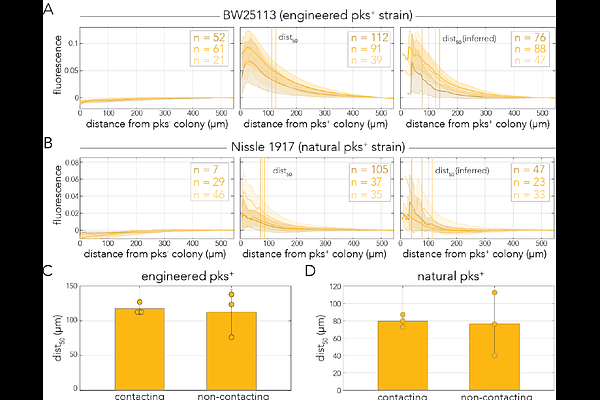Colibactin-induced damage in bacteria is cell contact independent

Colibactin-induced damage in bacteria is cell contact independent
Lowry, E.; Mitchell, A.
AbstractThe bacterial toxin colibactin, produced primarily by the B2 phylogroup of Escherichia coli, underlies some cases of colorectal cancers. Colibactin crosslinks DNA and induces genotoxic damage in both mammalian and bacterial cells. While the mechanisms facilitating colibactin delivery remain unclear, results from multiple studies supported a delivery model that necessitates cell-cell contact. We directly tested this requirement in bacterial cultures by monitoring the spatiotemporal dynamics of the DNA damage response using a fluorescent transcriptional reporter. We found that in mixed-cell populations, DNA damage saturated within twelve hours and was detectable even in reporter cells separated from colibactin producers by hundreds of microns. Experiments with distinctly separated producer and reporter colonies revealed that the intensity of DNA damage decays similarly with distance regardless of colony contact. Our work reveals that cell contact is inconsequential for colibactin delivery in bacteria and suggests that contact-dependence needs to be reexamined in mammalian cells as well.